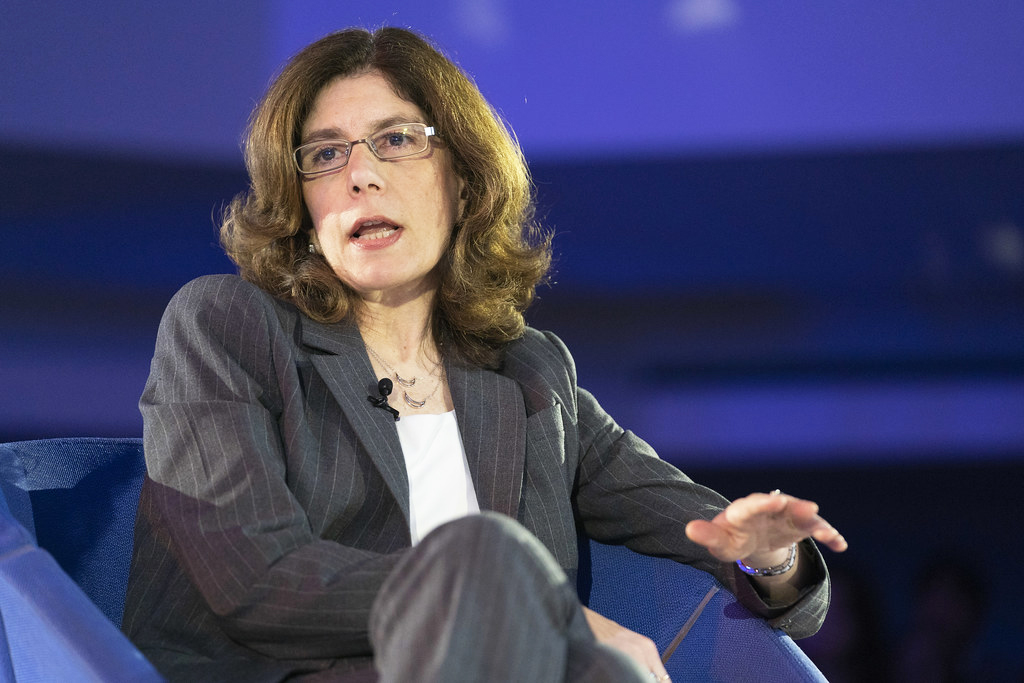
wikimedia-commons
Economics Professor Pinelopi Goldberg, who left her post as chief economist for the World Bank at the start of this month, will return to Yale in the fall.
Goldberg had been on public service leave from her faculty position since she began her time at the World Bank in fall 2018. She said that her two proudest accomplishments during her time as chief economist were two reports: one regarding international cooperation in world trade and the other regarding worldwide legal discrimination against women. Though her leave has been effective only since March 1, she announced her resignation from the World Bank in February.
“My guiding principle has always been that when one joins an institution, be it Yale or the World Bank, one buys into its mission and its leadership,” Goldberg said. “And there are always going to be disagreements, but one should try to resolve these disagreements internally — not by spilling the beans to the press. Now, when one reaches the point where there is constant disagreement and constant friction, one needs to go … and this is essentially what I did. I did not want to continue legitimizing, through my presence, decisions and directions that I fundamentally disagree with. I still very much believe in the mission of the World Bank to reduce poverty, but I feel that currently, I can serve this mission better from outside the Bank than from the inside.”
The World Bank did not respond to request for a comment on Goldberg’s resignation.
Regarding her return to Yale in the fall, Goldberg said she looks forward to having more time for personal research and working to develop the Jackson School.
“I am thrilled that [Goldberg] will be joining the Jackson faculty,” wrote Professor James Levinsohn, the director of the Jackson Institute, in an email to the News. “She’s a world-class scholar, a great teacher, and is returning from a very visible and important leadership role on the world stage. That’s an awesome mix and we’re proud Penny will be helping us build the Jackson School.”
Chair of the economics department Anthony Smith said that in the fall of 2020, Goldberg will instruct “Introductory Microeconomics,” which she taught before leaving for the World Bank. Smith referred to “Introductory Microeconomics” as the department’s “flagship, and largest, course,” and expects that Goldberg will be able to draw on her experiences at the World Bank when teaching this class.
“The Department of Economics is thrilled that [Goldberg] will be returning to her duties at Yale,” Smith wrote in an email to the News. “She is one of the world’s leading scholars in international trade, including its effects on poverty and inequality, and an important leader in the economics profession … The department couldn’t be happier to have her back!”
Smith also mentioned that Goldberg delivered the 30th annual Kuznets Lecture in Luce Hall on Feb. 27 to an “overflow crowd.”
In the lecture, titled “Poverty Reduction in the Era of Waning Globalization,” Goldberg spoke about how the period of hyperglobalization is coming to a close due to increased protectionism in countries like the United States and the United Kingdom. This protectionism threatens free trade, she said, making economic growth more difficult for developing countries. She argued that redistributing wealth from the rich to the middle class and the poor may be necessary for the development of these countries.
“I’m very happy to be back — for good now,” Goldberg said during her lecture. “Yale has been a wonderful home to me for many years.”
Aart Kraay is currently the acting chief economist at the World Bank.
Julia Brown | julia.k.brown@yale.edu







